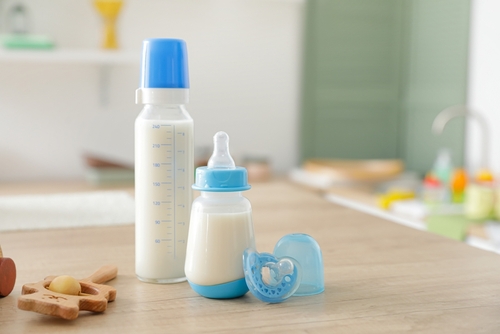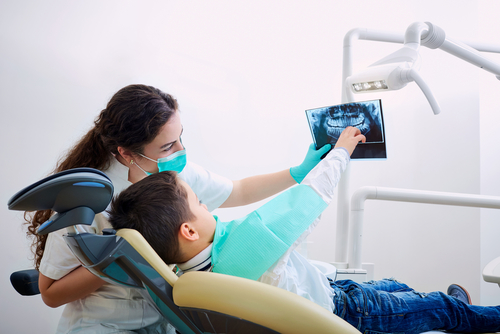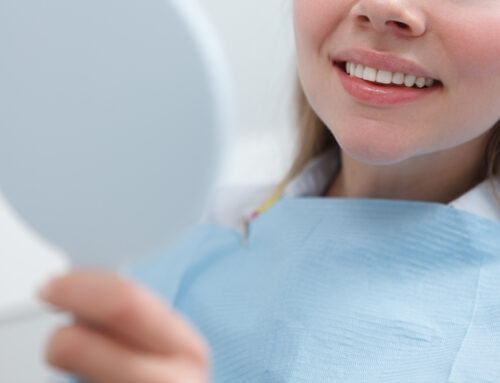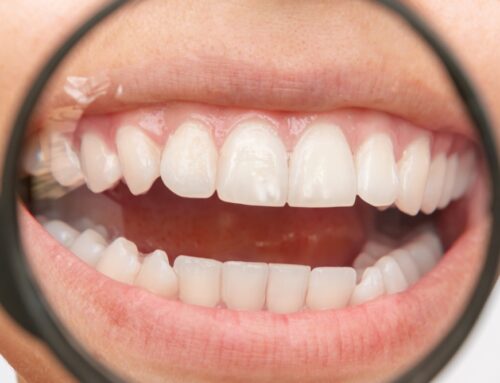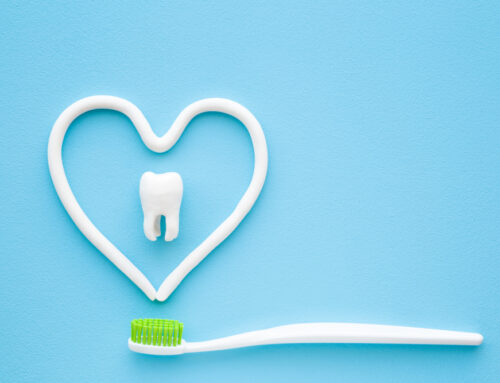Smart Practices for Your Baby’s Teeth
Healthy teeth start with proper dental care from a young age. Since babies and young children are too young to care for their own teeth, this is where parents’ role comes in. You can brush your baby’s teeth and take care of their gums until they are old enough to hold their own toothbrush. Remember that babies are just as susceptible to tooth decay and oral health conditions as you are. If you follow a good oral care routine and take your child to the dentist regularly, though, you should be able to keep their teeth sparkling clean.
Your Baby’s Early Years
Babies’ teeth start developing a lot earlier than you might think. In fact, the buds of a baby’s teeth start forming somewhere around 1-2 months into pregnancy. Even during these early days, what you do can affect your child’s dental health.
Nutrition During Pregnancy
It’s important that babies, and by extension, mothers, get all the nutrition they need during those early months of pregnancy. Calcium ensures that teeth and bones grow strong and can be found in dairy products such as milk, yogurt, and cottage cheese. Smaller amounts of the nutrient can even be found in leafy greens such as kale, broccoli, and bok choy. Vitamin D is likewise important since it helps your body absorb calcium and prevent tooth decay. Aside from sunlight, this nutrient can also be found in certain fortified foods such as milk or cereals.
Baby Gums Before Teeth Erupt
Most of us are familiar with the toothless grin of an infant. So you’ll know that babies are around for quite some time before their first teeth start poking through. Although some babies do begin teething very early on, others won’t get their baby teeth till they’re a year old. However, you’ll still be on the hook for dental care during these months.
Babies will need help brushing their teeth until they’re almost ready for kindergarten. The best way to get you both comfortable with this is to start cleaning their mouth before their teeth begin to erupt. Wiping a baby’s mouth can be done as soon as immediately after birth and is best done with a wet washcloth or gauze. It’s important to repeat this process after each feeding and to always wash your hands beforehand.
Keep in mind that it can be easy to miss the first few teeth poking their way through the gumline. After all, teeth don’t spring up all at once. They poke through centimeter by centimeter. Even a few centimeters is enough to catch food particles and develop cavities, however. So try to get used to cleaning your baby’s gums from early on.
Baby Teeth (Primary Teeth)
Between the ages of two and three, most children’s primary teeth finish coming in. These are the teeth that your child will keep until their permanent (adult) teeth start pushing through. Keep in mind, however, that although baby teeth may not be your forever teeth, they’re still very valuable for those few years. This is because these baby teeth function as placeholders for your future permanent teeth. Losing or damaging these teeth prematurely could cause future misalignment issues. Furthermore, these teeth will still be responsible for chewing food and providing your child with nutrients for many years.
With the proper care and attention, a baby’s pearly whites will stay healthy. Early intervention also helps develop good dental habits for later on in life. Keep reading to learn smart oral care practices for your baby’s teeth.
Tips For Caring For Your Baby’s Teeth
We know that caring for a newborn baby can seem like a daunting task, but don’t worry, we’re here to help out. Keep reading to learn some important tips for caring for your child’s teeth.
Don’t Neglect Baby Teeth
Baby teeth will eventually fall out, but that doesn’t mean you don’t have to worry about them. Preserving each baby tooth is necessary to maintain space for permanent teeth. If cavities are left untreated, children can develop gingivitis or lose baby teeth, which could compromise the placement of their adult teeth. Moreover, dental problems can cause discomfort or pain for your child. Remember that babies aren’t able to communicate effectively, so they won’t be able to tell you if they’re experiencing discomfort.
Avoid Baby Bottle Tooth Decay
Baby bottles and suckers are the first tools under the belt of a new parent, and for good reason; after all, they’re helpful for feeding and placating newborns. As helpful as they are, though, baby bottles can also cause dental problems. You may be tempted to let a baby fall asleep with a bottle, but there are so many reasons why you shouldn’t do this.
Dental decay generally starts with sugars on the surface of your teeth. Bacteria inside your mouth feed on leftover sugars and produce a harmful acid. As this acid eats away at your tooth, a hole develops. Left untreated, the decay can burrow deeper and reach more sensitive parts of your tooth. What you may not realize, however, is that milk and juice contain these harmful sugars as well! This means that if you leave your child with a bottle filled with juice, their teeth will be exposed to harmful sugars for even longer than they need to be. Moreover, if a baby falls asleep with a bottle or pacifier on a regular basis, the plastic nipple could put pressure on their front teeth, causing a misalignment.
Start Using Fluoride Toothpaste at 2 Years Old
By the time your toddler celebrates their second birthday, it may be time to start using fluoride toothpaste. Talk to your pediatric dentist about an age-appropriate toothbrush and toothpaste. Make sure you only use a bit of baby toothpaste (the size of a grain of rice) and have them spit it out and rinse properly.
As your child gets older, start teaching them how to do the brushing themselves. You can even make the process fun by having the whole family brush together. This way, your child will learn proper brushing techniques from a young age. Don’t forget, however, that they will still need a helping hand for quite a few years. Young children don’t have the proper motor skills to brush their teeth thoroughly.
See the Dentist Regularly
A child’s first tooth is one of the most exciting parts of being a parent. You’ll probably be jumping up and down when you see that very first tooth poking through. What this milestone also means, though, is that it’s time to see your pediatric dentist. Babies should have their first dental check-up as soon as their first tooth erupts or by their first birthday— whichever happens first.
Your child’s first few dental exams shouldn’t take too long. These early exams establish a relationship between your child and the staff and help alleviate fears as the child grows. As a bonus, it lets the dentist and staff watch your child’s early tooth development, which could help prevent problems before they become significant problems. By following good oral care habits, you are paving the way for your child or children to have a healthier smile.
Permanent Teeth
Somewhere around six or seven years of age, children will usually begin shedding their baby teeth. During this time, their permanent adult teeth will also begin to come in. By the time you’re an adult (about 21 years of age), almost all your adult teeth should be fully ruptured. Throughout all these years, however, your teen still needs to continue visiting their dentist. Permanent teeth are precious because they’re what will stay with you till the end of your life. That’s why it’s important to keep them free of cavities. A good family dentist can keep an eye out for signs of dental decay and take steps to make repairs early on.
Here are some ways to keep up good dental care on a daily basis:
- Brush teeth twice a day (ideally after mealtime).
- Floss once a day. Be thorough and use good technique.
- Limit snacking. Excess sugars can stick to your teeth throughout the day, increasing your chances of developing cavities.
- Avoid sugary drinks. Long sipping allows for sugar to hang around your teeth for long periods of time.
Schedule a Pediatric Dental Exam in Tennessee for Baby Teeth
Is your child ready for their first dental exam? If so, call Snodgrass-King Dental to schedule an appointment. Our staff of pediatric dentists will be happy to care for you and your child. We’ll also help your child start establishing a lifetime of healthy dental habits.
Best of all, though? Our dental practice cares for our patients from birth to old age. This means that your child will know their dentists for years and grow comfortable with our dental office.
Snodgrass-King Dental offers services such as cleanings, fillings, crowns, teeth whitening, and much more. Have questions? Simply visit our website and look around. Else, give one of our offices a call, and someone from our staff will be happy to chat. Our website also features a variety of helpful articles and new patient forms.



